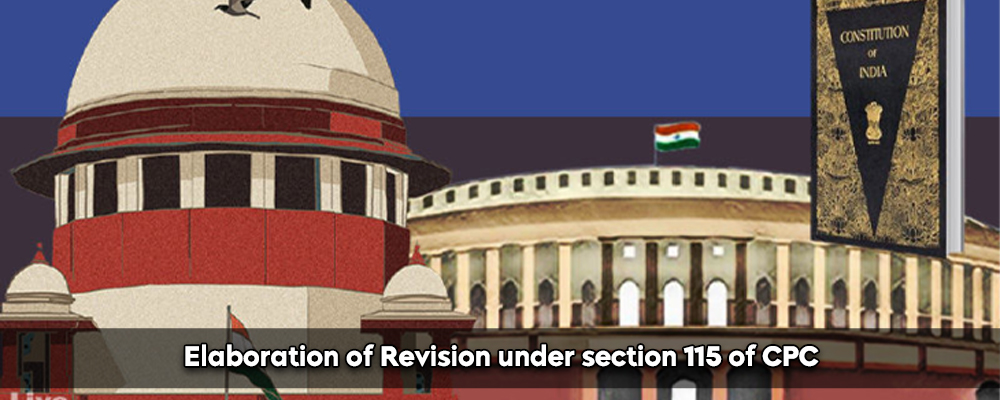Revision is going through anything carefully, completely, and diligently. The High Court has revisional jurisdiction, as established in Section 115 of the Code of Civil Procedure. To guarantee the delivery of justice and the maintenance of fairness, the High Court has the authority to review decisions determined by lower courts. Any aggrieved party may make an application for revision once the matter has been determined, provided that no appeal against the judgment is already pending. If the correct cause is identified, such as extrajudicial action or unlawful and erroneous process used by the subordinate court, the High Court may decide to reconsider the case. The High Court may also exercise suo moto revisional power under the Code of Civil Procedure.
Need A Legal Advice
The internet is not a lawyer and neither are you. Talk to a real lawyer about your legal issue

Conditions for Revision
Precedents
The lower court must have previously decided the matter and rendered a decision. A case cannot be changed if it has not been determined and no ruling has been rendered. The term “case decided” was not defined in the 1908 CPC. This resulted in several different judgments on whether the aforementioned term also comprised an interlocutory order.
There is no appeal
There must be no pending appeals from the lower court’s decision. If there is an existing appeal against the case, the High Court cannot revise it, and vice versa. The modification can only be filed after the appeal is dismissed. The term “appeal” refers to both the first and second appeal. As a result, the revision can only lie if the appeal is denied or does not lie.
Jurisdictional error When the subordinate court appears to have:
- Acted more than the jurisdiction granted to it by law, or
- Failed to exercise the jurisdiction granted to it by law, or
- Displayed serious irregularity and used its power unlawfully or in violation of the requirements of law.
Subordinate court
The High Court cannot exercise revisional jurisdiction unless a case is determined by a court subordinate to the High Court. Only a civil court of judicature is considered, and this excludes any individual operating in an administrative position
Alternative treatment
The authority of revisional jurisdiction and its use are at the discretion of the High Court and cannot be claimed as a right by any aggrieved party. Before exercising the authority of revisional jurisdiction, many considerations are examined. If an effective or other remedy is available to the aggrieved party, the court may decline to exercise its revisional authority and instead offer the alternate remedy and relief to the aggrieved party. This is done to avoid the abuse of revisional jurisdiction and to limit its use to circumstances where it is essential.
Case Law
In the case of Rahimal Bathu V. Ashiyal Beevi, Civil Appeal No. of 2023 (Arising out of SLP (C) No. 8428 OF 2018, The Supreme Court ruled that a revision petition filed under Section 115 of the Code of Civil Procedure, 1908 against the denial of a review application of an appealable order by a subordinate court on merits cannot be heard. The Court stated that if the Trial Court had granted the review, the aggrieved party would have had the right to appeal under Order XLIII Rule 1 (w) read with Order XLVII Rule 7 of the CPC. If it had authorized the review and modified/altered/reversed the judgment, the aggrieved party would have the right to initiate an appeal against such a ruling. However, if the revisional court (High Court) amends the order, an anomalous situation would occur, and the aggrieved party’s ability to appeal will be compromised, the Apex Court stated.
The Supreme Court further said that in cases where review is permitted and the decree is reversed/modified, the decree so vacated/reversed/modified is the one that is effective for further appeal. However, if the review petition is denied, the aggrieved party must file a challenge within the time frame specified for the original judgment, because there is no merging of decrees as in the prior case.
Lead India offers legal help, online tools, and free legal advice. As soon as you have Lila, you can talk to a lawyer immediately away. Ask a legal question for advice.





 Talk to a Lawyer
Talk to a Lawyer